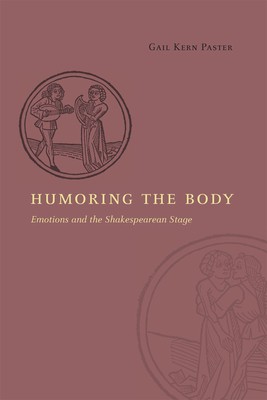
- We will send in 10–14 business days.
- Author: Gail Kern Paster
- Publisher: University of Chicago Press
- ISBN-10: 022621382X
- ISBN-13: 9780226213828
- Format: 15.5 x 22.8 x 1.6 cm, minkšti viršeliai
- Language: English
- SAVE -10% with code: EXTRA
Reviews
Description
Though modern readers no longer believe in the four humors of Galenic naturalism--blood, choler, melancholy, and phlegm--early modern thought found in these bodily fluids key to explaining human emotions and behavior. In Humoring the Body, Gail Kern Paster proposes a new way to read the emotions of the early modern stage so that contemporary readers may recover some of the historical particularity in early modern expressions of emotional self-experience.
Using notions drawn from humoral medical theory to untangle passages from important moral treatises, medical texts, natural histories, and major plays of Shakespeare and his contemporaries, Paster identifies a historical phenomenology in the language of affect by reconciling the significance of the four humors as the language of embodied emotion. She urges modern readers to resist the influence of post-Cartesian abstraction and the disembodiment of human psychology lest they miss the body-mind connection that still existed for Shakespeare and his contemporaries and constrained them to think differently about how their emotions were embodied in a premodern world.EXTRA 10 % discount with code: EXTRA
The promotion ends in 21d.14:46:59
The discount code is valid when purchasing from 10 €. Discounts do not stack.
- Author: Gail Kern Paster
- Publisher: University of Chicago Press
- ISBN-10: 022621382X
- ISBN-13: 9780226213828
- Format: 15.5 x 22.8 x 1.6 cm, minkšti viršeliai
- Language: English English
Though modern readers no longer believe in the four humors of Galenic naturalism--blood, choler, melancholy, and phlegm--early modern thought found in these bodily fluids key to explaining human emotions and behavior. In Humoring the Body, Gail Kern Paster proposes a new way to read the emotions of the early modern stage so that contemporary readers may recover some of the historical particularity in early modern expressions of emotional self-experience.
Using notions drawn from humoral medical theory to untangle passages from important moral treatises, medical texts, natural histories, and major plays of Shakespeare and his contemporaries, Paster identifies a historical phenomenology in the language of affect by reconciling the significance of the four humors as the language of embodied emotion. She urges modern readers to resist the influence of post-Cartesian abstraction and the disembodiment of human psychology lest they miss the body-mind connection that still existed for Shakespeare and his contemporaries and constrained them to think differently about how their emotions were embodied in a premodern world.

Reviews